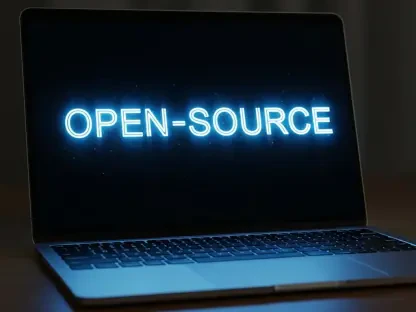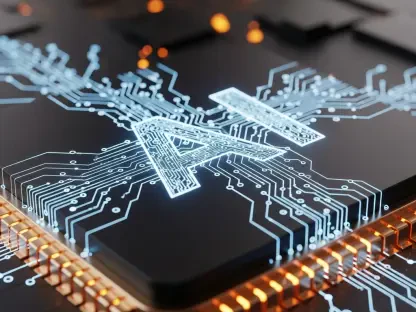Artificial intelligence (AI) is revolutionizing many industries, and the field of programming is no exception. Linus Torvalds, the creator of the Linux kernel and Git, offers insightful perspectives on how AI is transforming software development. This article delves into the profound changes AI brings to coding, from automating code writing to enhancing collaboration within the open-source community. By integrating natural language processing (NLP) in programming, AI has opened doors to new levels of abstraction, efficiency, and accessibility. However, this powerful technology comes with its own set of challenges and ethical considerations.
Automating Code Writing and Review
AI-Driven Efficiency
AI tools are increasingly capable of generating code from simple natural language descriptions. Developers can now write code using plain English instructions. This not only streamlines the coding process but also makes it accessible to individuals from diverse backgrounds. AI allows developers to focus on higher-level problem-solving rather than getting bogged down in syntax and syntax-related errors.
AI’s role in code review processes is equally transformative. Automation can catch obvious bugs and subtle errors that human reviewers might miss. High-quality code is essential for robust and reliable software. Therefore, AI’s ability to enhance code quality makes it an invaluable asset in the programming toolkit. Additionally, AI tools excel at identifying coding patterns and suggesting improvements that humans might overlook due to familiarity or oversight. This not only helps in maintaining consistently high standards but also accelerates the development process, thereby enabling teams to meet deadlines more effectively.
Moreover, AI-driven code writing and review extend the benefits of machine learning algorithms to enhance overall software robustness. These algorithms can predict potential issues by analyzing vast repositories of existing code and historical data. Incorporating such predictive analytics into the development cycle ensures that software is not only timely but also fortified against a wide array of potential vulnerabilities. This dual role of AI—streamlining routine tasks and bolstering security—makes it indispensable to modern-day software development.
Democratizing Programming
By enabling the translation of natural language to executable code, AI democratizes programming. More people, including those without formal coding education, can now engage in software development. This lowers the barrier to entry, promoting inclusivity and innovation. The shift from machine code to high-level languages and now to NLP is a natural evolution that broadens the scope of who can participate in coding.
Furthermore, educational resources can be more effectively tailored to individual learning speeds and styles, leveraging AI-driven feedback and suggestions. Students and beginners benefit immensely from this personalized approach, accelerating their journey from novice to proficient coder. In addition, AI can identify gaps in knowledge and adapt learning materials to address these shortcomings, thus providing a more comprehensive educational experience.
The democratization of programming also fosters a more diverse and dynamic development community. As more people with varying perspectives and problem-solving approaches join the field, the range of innovative solutions increases. This inclusivity not only drives technological advancement but also ensures that software products are more representative of the diverse user base they serve. In essence, AI broadens the programming landscape, making it more inclusive, adaptive, and innovative.
New Level of Abstraction
Evolution of Programming Languages
Artificial intelligence introduces a new level of abstraction in programming languages. Developers can describe what they want in plain English, and AI systems convert these descriptions into executable code. This development is groundbreaking, as it simplifies the process and bridges the gap between technical and non-technical stakeholders.
With this new abstraction level, the traditional approach to learning programming languages may shift. The focus moves from syntax memorization to understanding core programming concepts and logic. This evolution could lead to more intuitive and creative software solutions, enabling a broader range of people to contribute their ideas. The simplification of coding languages paves the way for more interdisciplinary collaborations, where experts from various fields can easily prototype and test software solutions without deep programming expertise.
Moreover, the evolution of programming languages under AI’s influence demands a reevaluation of educational curricula. Schools and universities may need to update their syllabi to focus more on logic, problem-solving, and understanding how AI tools work rather than traditional coding syntax. This educational shift would prepare future generations better for a tech landscape increasingly driven by AI and automation. As AI continues to advance, we might see programming become less about technical know-how and more about creativity and strategic thinking.
Potential for AI-Specific Languages
There’s speculation that AI might eventually develop its own programming languages, tailored to its capabilities. These AI-specific languages could streamline complex coding tasks, reducing the need for extensive human intervention. While traditional developers will still play a crucial role, they might find their responsibilities evolving toward overseeing AI systems rather than writing every line of code.
Such a shift would require developers to adapt their skillsets. Understanding AI algorithms, tuning models, and ensuring that AI outputs align with human goals and ethical standards will become increasingly important. This evolution reinforces the need for continuous learning and adaptability in the development community. Moreover, these AI-specific languages could focus on optimizing performance and security, aspects that are paramount in applications ranging from financial technology to healthcare.
In the grand scheme, AI-specific languages could serve as a unifying platform for various specialized AIs, enhancing interoperability while minimizing redundant development efforts. Such a shift would enable more efficient use of resources and foster greater innovation across industries. As AI systems mature, they could handle increasingly complex tasks autonomously, leaving human developers to concentrate on strategic planning and high-level oversight.
Evolution of Developer Roles
Overseeing AI Systems
Despite AI’s automation capabilities, developers will not become obsolete. Instead, their roles will shift to overseeing AI systems and ensuring these systems meet human-centric goals. This involves handling edge cases, troubleshooting unexpected behavior, and maintaining alignment with ethical standards. Developers will need to strike a balance between leveraging AI’s efficiency and preserving their critical oversight functions.
Moreover, developers will play a key role in training and refining AI models. Their expertise in the domain will be vital for creating effective AI tools. This collaborative human-AI partnership can lead to even more remarkable advancements in programming. In essence, developers serve as the critical checkpoint ensuring that AI implementations adhere to human values, regulatory norms, and ethical guidelines.
The oversight role also extends to data management and privacy concerns. As AI systems increasingly handle sensitive data, developers must ensure compliance with data protection regulations and ethical data usage. This responsibility adds another layer of complexity to the developer’s role, making it indispensable for safeguarding user trust and maintaining the integrity of AI systems. Thus, far from becoming obsolete, developers are poised to become even more integral to the tech ecosystem.
Addressing AI’s Limitations
AI-driven programming is not without its challenges. AI systems can make errors, sometimes referred to as “hallucinations,” where the AI produces incorrect or nonsensical outputs. These errors can have significant repercussions, especially in critical applications. Developing robust error detection and correction mechanisms is essential to mitigate such risks.
Ensuring the reliability and safety of AI in coding involves continuous monitoring and improvement. Developers must remain vigilant and proactive in identifying and fixing issues. This process will not only improve AI systems but also build trust in their capabilities. The importance of fail-safes and rigorous testing protocols becomes paramount to ensure that AI-driven code meets the high standards required for mission-critical systems.
Addressing these limitations also requires a multi-disciplinary approach. Collaborations between AI specialists, software engineers, and domain experts can produce more comprehensive solutions to potential errors. Standardizing best practices for error detection and resolution can further fortify AI’s role in programming. By proactively tackling these challenges, developers can harness AI’s full potential while minimizing risks, thus paving the way for more reliable and innovative software solutions.
Impact on Open-Source Community
Accelerating Development
The integration of AI tools in open-source projects can accelerate development processes and enhance code quality. AI can assist in managing large codebases, automating repetitive tasks, and providing intelligent insights. This facilitates faster iteration, allowing contributors to focus on innovative features and improvements.
However, the rise of AI in open-source development also raises important questions about contributions and collaboration. AI-generated code needs to be as transparent and accountable as human-written code. Open-source communities will need to establish guidelines and best practices for integrating AI contributions. These guidelines will be crucial in maintaining the collaborative spirit of open-source while ensuring the reliability and integrity of contributed code.
Furthermore, AI’s role in open-source can democratize participation by allowing contributors from diverse backgrounds to engage meaningfully. Automated tools can assist newcomers in understanding codebases and identifying areas where they can contribute, regardless of their initial skill level. This inclusivity can invigorate open-source projects with fresh perspectives and innovative solutions, driving the collective progress of the tech community.
Balancing Open Data and Open Algorithms
Artificial intelligence is dramatically reshaping numerous industries, and programming is no exception. Linus Torvalds, the visionary force behind the Linux kernel and Git, provides valuable insights into how AI is transforming the world of software development. This article explores the significant alterations AI introduces to coding, including the automation of code generation and the enhancement of collaborative efforts, particularly within the open-source community. With the incorporation of natural language processing (NLP), AI has elevated programming to new levels of abstraction, efficiency, and accessibility. However, this cutting-edge technology isn’t without its own unique set of challenges and ethical issues. These considerations include the potential loss of jobs, biases in code generated by AI, and the broader influence AI will have on the open-source community. By navigating these complexities, we can better understand the true impact of AI on the future of software development. The collaboration between human ingenuity and AI could potentially lead to even more groundbreaking innovations in the field.









